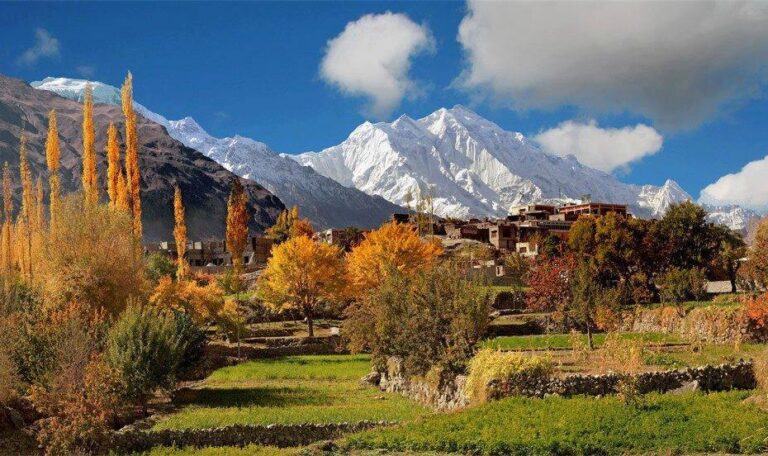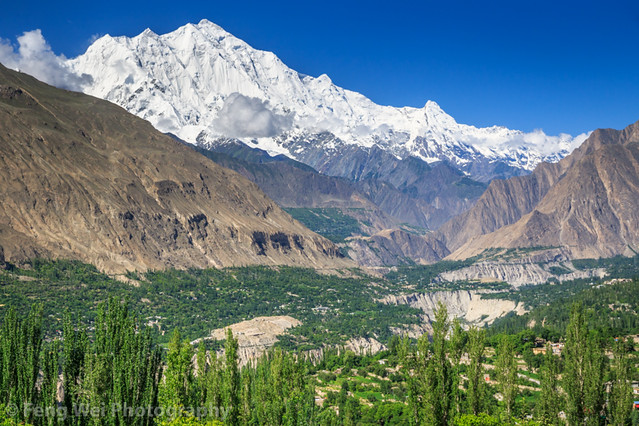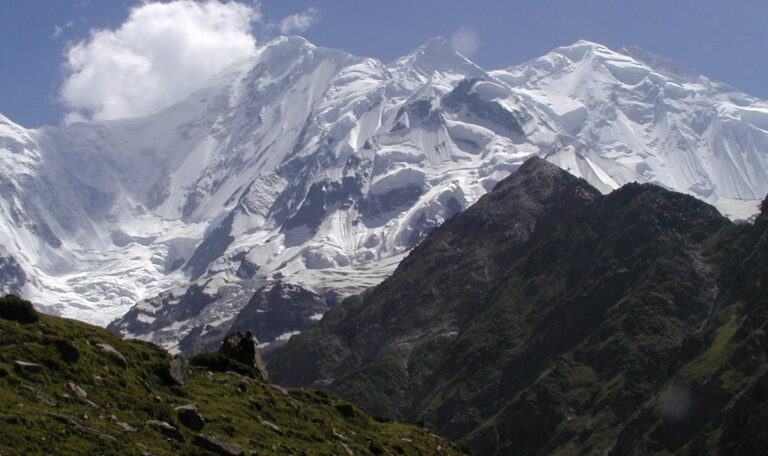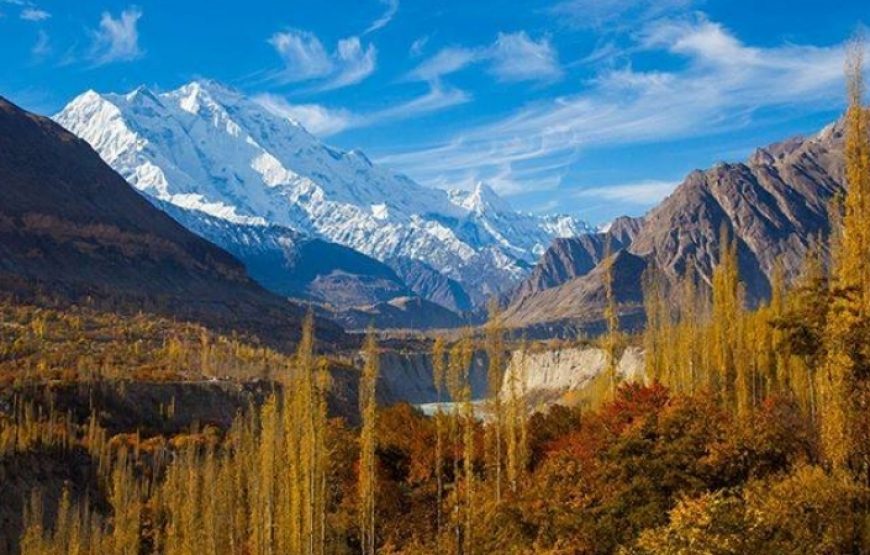Nestled in the heart of the Karakoram Range, Rakaposhi is a testament to the breathtaking beauty and raw power of nature. Known as the 27th highest mountain in the world. Rakaposhi is a majestic peak that captivates the imagination of mountaineers, trekkers, and nature enthusiasts alike. In this blog, we will delve into the rich history, geographical features, and allure of Rakaposhi, exploring what makes this mountain an iconic symbol of the Karakoram.
Geographical Overview
Location
Rakaposhi, situated in the Gilgit-Baltistan region of Pakistan, within the Karakoram Range. Its coordinates are approximately 35.8236° N latitude and 75.5566° E longitude. The mountain dominates the landscape, standing tall at the western end of the Karakoram Range.
Height
Rakaposhi boasts an impressive elevation of 7,788 meters (25,551 feet) above sea level. Its prominence and isolation make it a prominent landmark in the region.
Etymology
The name “Rakaposhi”, derived from the local language, Shina, where “Raka” means “shining” or “bright,” and “Poshi” means “wall.” Rakaposhi, often referred to as the “Shining Wall,” a fitting name for a mountain that seems to glow in the sunlight.

Historical Significance
Exploration and Discovery
The first European sighting of Rakaposhi was by the British officer and explorer Sir Martin Conway in the late 19th century. The first attempt to climb the mountain was made in 1938by an Anglo-American expedition led by Charles Houston. Despite their efforts, the team did not succeed in reaching the summit. It wasn’t until 1958 that an Austrian team led by Fritz Wintersteller finally conquered Rakaposhi, marking a significant achievement in the world of mountaineering.
Climbing Challenges
Rakaposhi is renowned for its challenging ascent. The mountain presents a complex and steep terrain, with crevasses, seracs, and avalanches posing serious threats to climbers. The unpredictable weather conditions in the Karakoram Range add an additional layer of difficulty, making Rakaposhi a formidable challenge for even the most experienced mountaineers.

Unique Features
Distinctive Shape
What sets Rakaposhi apart is its pyramid-like shape, featuring four distinct faces. The Northwest Face, in particular, is known for its sheer vertical rise, making it one of the tallest faces in the world. The mountain’s symmetry and elegance contribute to its allure, attracting photographers and artists seeking to capture its beauty.
Glaciers and Icefalls
Rakaposhi, surrounded by glaciers and icefalls, adding to its glacial charm. The famous Rakaposhi Glacier flows down from the mountain, creating a stunning icy landscape. These glaciers also serve as a critical water source for the surrounding areas.
Flora and Fauna
Biodiversity
Despite the harsh conditions at high altitudes, the Karakoram Range supports a diverse range of flora and fauna. The lower slopes of Rakaposhi are home to juniper, pine, and birch forests, providing habitat for various wildlife, including Himalayan ibex, snow leopards, and red foxes. The juxtaposition of rugged mountain terrain and thriving ecosystems creates a unique and fragile environment.
Cultural Significance
Local Communities
The region around Rakaposhi is inhabited by diverse ethnic groups, including the Shina-speaking people. The mountain holds cultural and spiritual significance for these communities, often featuring in local folklore and traditions. The local residents, with their warmth and hospitality, contribute to the overall experience of exploring the Rakaposhi region.
Tourism
Rakaposhi’s majestic presence draws trekkers and climbers from around the globe. The Karakoram Highway, one of the highest paved international roads in the world, provides access to the base camp of Rakaposhi, allowing adventurers to witness its grandeur up close. The increasing popularity of trekking and mountaineering in the region has led to a growth in tourism, bringing economic opportunities to the local communities.

Conservation Efforts
As the demand for adventure tourism grows, so does the need for responsible and sustainable practices. Conservation efforts are underway to preserve the fragile ecosystems surrounding Rakaposhi. Initiatives focus on waste management, limiting the ecological impact of tourism, and promoting responsible trekking and climbing practices to ensure the long-term preservation of this natural wonder.
Conclusion
Rakaposhi, with its towering peaks, icy glaciers, and rich cultural tapestry, stands as an epitome of natural beauty and human determination. As adventurers continue to be drawn to its slopes and valleys, it is crucial to balance the thrill of exploration with a commitment to conservation. Rakaposhi’s legacy as a beacon of the Karakoram Range will endure, inviting future generations to marvel at the Shining Wall and all the wonders that surround it.



